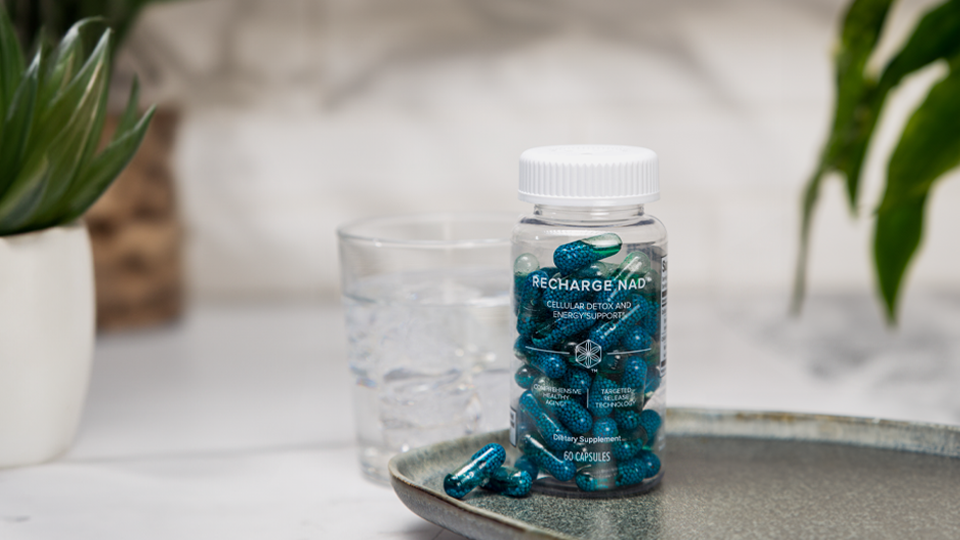Training for a marathon or triathlon takes dedication. It requires hours of hitting the pavement, pushing through ailments, and intense mental concentration. Proper nutrition can also be the difference between participating and actually competing in a race—and with so much of yourself invested in your goal, it’s a training component you can’t afford to ignore.
According to the American College of Sports Medicine, an endurance athlete is one who trains and competes for 90 minutes or longer. Carbohydrates are the most effective form of fuel to support endurance athletes because they are easily converted to energy by the body. We store carbohydrate energy—in the form of glycogen in muscles and liver— but that can only last so long without replenishment.
The amount of glycogen stored (and how long you can rely on it for fuel) varies person to person. In general, a 150-pound man stores about 2000 calories of glycogen fuel (1) or approximately 90 minutes of exercise energy before glycogen stores become depleted and the body must rely on fat for fuel. Complete glycogen depletion results in reduced speed and efficiency, also known as “hitting the wall.”
To avoid an energy crash during your race, it’s essential to provide your body with proper fuel during your training as well as before, during, and after the race.
Training Nutrition: During training, it’s important to provide your body with quality nutrition so it can push through physically demanding workouts.
- Not all carbohydrates are equal. Your body needs carbohydrate fuel (glycogen) to perform, but don’t think this means you can binge on cheesy lasagna dishes, gorge on doughnuts, or snack on potato chips. Focus on whole grains and fresh fruits and vegetables as your main carbohydrate sources. The key is to increase your intake of these healthy carbs.
- Put it into action: Add a banana and oats to your IsaLean® or IsaLean® Pro Shake.
- Protein isn’t just for bodybuilders. Because there’s so much focus on carbohydrates for endurance athletes, protein is frequently ignored. Eating high-quality protein during your training can help maintain muscle mass, improve stamina and race time, speed recovery, and support a healthy immune system (2). Through balanced nutrition, you can keep your body healthy and primed for the race ahead.
- Put it into action: Consume protein throughout the day, even when you’re on the go with IsaLean bars.
- Time for trial and error. Tolerance of certain foods differs for each individual. Training is the time to try different foods and fueling methods to see what works best for you. By the time race day comes, you’ll have your routine down.
- Put it into action: Try different hydration methods such as adding Want More Energy?® to watered-down beetroot juice, which has been shown to support greater oxygen delivery to working muscles (3).
- Protect with nutrients. Supplying your body with antioxidants, fish oil, as well as essential vitamins and minerals helps the body adapt to the physical stress of ultra-endurance exercise.
- Put it into action: Use Ageless Essentials Daily Packs™ with Product B™, Ionix® Supreme, and IsaOmega Supreme® to provide daily protection.
Pre-Race Day: About three days before your race you’ll cut back on training so your body is fully recovered when you’re at the starting line. But that doesn’t mean you should ditch your diet routine. The few days leading up to your race are the most important time for replenishing glycogen stores.
- Moderately increase carbs. Because your exercise output will decrease prior to your race, a degree of carb-loading will ensue just by sticking with your current diet. The percentage of carbohydrates that should be consumed differs from person to person, but on average about 60 to 70 percent of your calories should come from carbs (1). If your diet during training has allowed you to perform well, stick with that routine and increase carbohydrate sources slightly.
- Put it into action: Try three scoops of IsaLean Shake, rather than two, to increase carbohydrate intake.
Race Day: Nervous (but excited) jitters are common on race day. Your appetite may be nonexistent, but don’t pass on pre-race fuel.
- Keep going with carbohydrates and caffeine. In addition to eating a carb-centered meal before your race, consume carbohydrates during your race. This will prevent complete glycogen depletion so you don’t “hit a wall.” Also, consuming caffeine along with carbohydrate may spare the body from glycogen depletion and exhaustion (4).
- Put it into action: Along with your carbohydrate-rich pre-race meal, take an e+™ Natural Energy Shot.
- Stay hydrated. It’s very important to drink small amounts of water regularly during your competition. (Chugging down a lot at once can lead to an upset stomach.) Also, providing your body with water and electrolytes will prevent muscle cramps.
- Put it into action: Take advantage of the water stations along the race. Even better, fill your “fuel belt” with Want More Energy? for electrolyte replenishment.
Post-Race Day: After hours of training, you have finally achieved your goal and completed your race. Thank your body for all the work it did by giving it the nourishment it craves.
- Replenish glycogen and protein. Even if you followed all the rules for loading up on carbohydrates before and during your race, you’ll still have some work to do after your marathon or triathlon. Studies show carb uptake by muscle to be three and a half times greater after eating protein and carbohydrate together compared to smaller amounts of carbohydrate alone (5).
- Put it into action: Drink your IsaLean or IsaLean Pro Shake with added carbohydrates to replenish glycogen and muscle.
Competing in ultra-endurance races can be very rewarding and challenging. By nourishing your body properly, you can cross the finish line with a sense of accomplishment knowing you supplied your body with what it needed to succeed.
References
- American College of Sports Medicine. Retrieved on May 14, 2014: http://www.acsm.org/
- Moore DR, et al. Beyond muscle hypertrophy: why dietary protein is important for endurance athletes. Applied Physiology, Nutrition, and Metabolism. 2013. doi: 0.1139/apnm-2013-0591
- Bloomer RJ, Farney, TM, Trepanowski, JF, et al. Effect of betaine supplementation on plasma nitrate/nitrite in exercise-trained men. Am J Clin Nutr. 2006;84:475–82.
- Slika D, Halies W, Cuddy J, et al. Caffeine and carbohydrate supplementation during exercise when in negative energy balance: effects on performance, metabolism, and salivary cortisol. Appl Physiol Nutr Metab 2008:33(6):1079-85. doi: 10.1139/H08-093.
- Levenhagen DK, et al. Postexercise protein intake enhances whole-body and leg protein accretion in humans. Med Sci Sports Exerc 2002;34(5):828-37.






